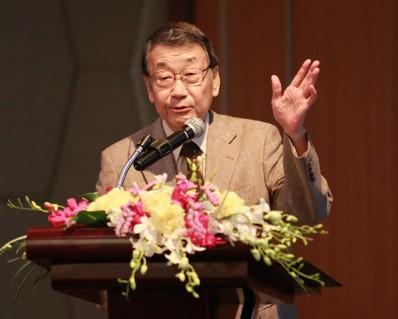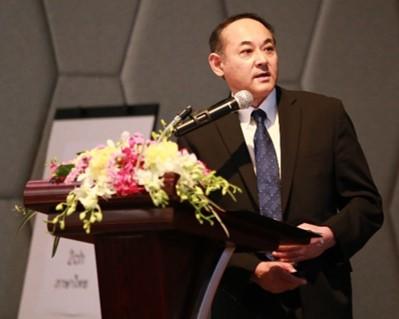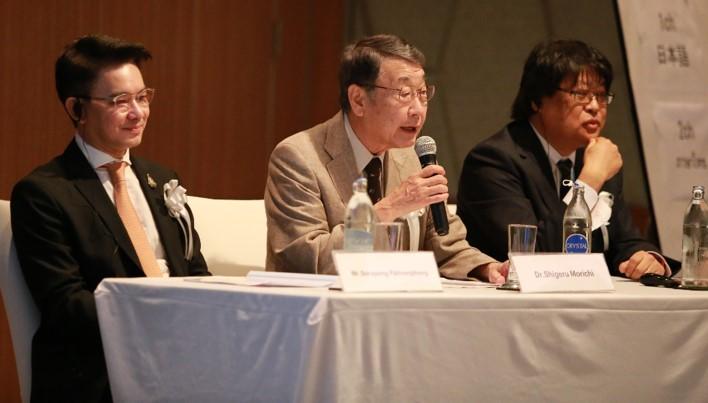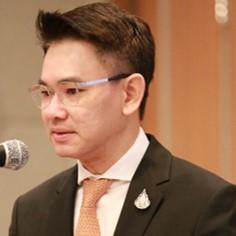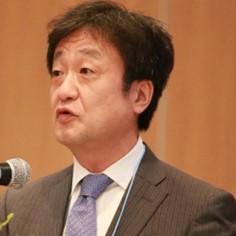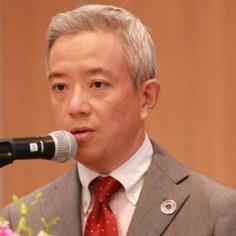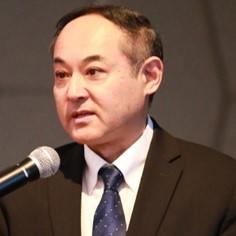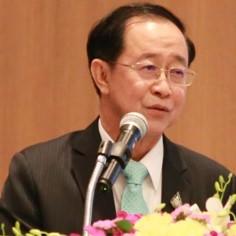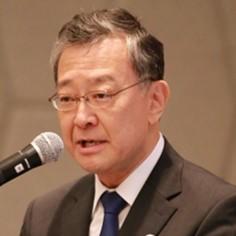JTTRI International Seminar on Railway and Area Development in Thailand
- International Activities
- Railways and Railway and Area Development
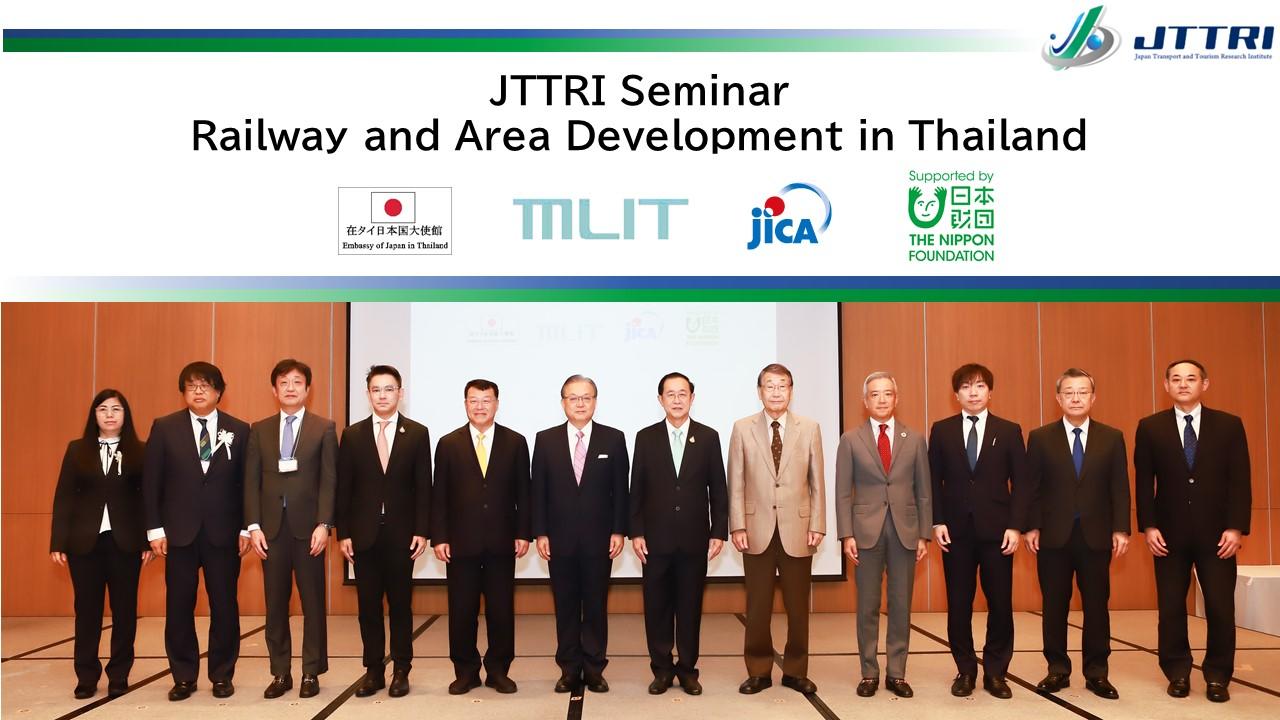

| Organizer | Japan Transport and Tourism Research Institute (JTTRI) |
|---|---|
| Sponsorship | Ministry of Land, Infrastructure,Transport and Tourism (MLIT-Japan) Embassy of Japan in Thailand Japan International Cooperation Agency (JICA) Ministry of Transport(MOT) |
| Date / Time | Tue, Jan 14,2020 9:00~12:05 |
| Venue | Ballroom A 7F, The Westin Grande Sukhumvit, Bangkok |
| Theme | Railway and Area Development in Thailand |
| Lecturer | Opening Remarks: Masafumi Shukuri, Chairman, Japan Transport and Tourism Research Institute (JTTRI) Honorable Guest Remarks 1: Sorapong Paitoonphong, Director-General of the Department of Rail Transport, MOT Thailand Yasuhiro Okanishi, Director-General for International Affairs, MLIT, Japan Noboru Sekiguchi, Minister, Chief of the Economic Section, Embassy of Japan in Thailand Keynote Speech: "Transit Oriented Urban Development in Asian Cities" Shigeru Morichi, Director of Policy Research Center, National Graduate Institute for Policy Studies (GRIPS) and JTTRI Advisor for Research Presentation:"Railway and Area Development" Masai Muto, Senior Research Fellow, Japan Transport and Tourism Research Institute (JTTRI) Panel Discussion: Moderator: Naohiko Hibino, Associate Professor, National Graduate Institute for Policy Studies(GRIPS) Panelists: Sorapong Paitoonphong, Director-General of the Department of Rail Transport, MOT Thailand Shigeru Morichi, Director of Policy Research Center, GRIPS and JTTRI Advisor for Research Atsushi Fukuda, Professor, Department of Transportation Systems Engineering, College of Science and Technology, Nihon University Honorable Guest Remarks 2: Arkhom Termpittayapaisith, Former Minister of Transport, the Kingdom of Thailand Closing Remarks: Tetsuya Okuda, Executive Director,Japan Transport and Tourism Research Institute (JTTRI) |
Event Summary
In metropolises of ASEAN countries which are confronted with various problems such as road congestion and environmental pollution, railway development projects have been moving forward. In Bangkok, the Orange Line and other Mass Rapid Transit Lines are also moving forward.
For sustainable railway development, it is effective to comprehensively consider railway development and development of areas along the railways and Japan has a lot of knowledge and experience of such railway and area development.
In this seminar, knowledges and experiences of railway and area development in Japan and the latest worldwide information in these topics were shared, and measures for solving the aforementioned problems were considered through a panel discussion.
In the opening of this seminar, after a welcoming given by Chairman Masashi Shukuri of JTTRI, Sorapong Paitoonphong, Chairman of the Ministry of Transport, Ministry of Transport, Yasuhiro Okanishi, Director-General for International Affairs, Ministry of Land, Infrastructure, Transport and Tourism, and Noboru Sekiguchi, Minister, Embassy of Thailand in Japan, gave honorable greetings.
In the first half, Dr. Shigeru Morichi, Director of Policy Research Center, National Graduate Institute for Policy Studies, gave a keynote speech, and Dr. Masai Muto reported on his research.
In the latter half, a panel discussion was held, with Sorapong Paitoonphong, Director of Railways, Ministry of Transport of Thailand, Shigeru Morichi, Director of Policy Research Center, National Graduate Institute for Policy Studies, Atsushi Fukuda, Professor, Department of Transportation Systems Engineering, Faculty of Science and Engineering, Nihon University, as panelists, and Naohiko Hibino, Associate Professor, National Graduate Institute for Policy Studies as a moderator. They discussed issues and prospects for the railway and area development in Bangkok.
At the end of the seminar, the former Minister of Transport, Arkhom Termpittayapaisit, Thailand, gave an honorable guest remark to sum up the seminar.
Program of the seminar is as the following
| Opening Remarks | |
|---|---|
| Honorable Guest Remarks | |
| Honorable Guest Remarks | |
| Honorable Guest Remarks | |
| Keynote Speech | |
| Presentation | |
|
Panel Discussion |
|
| Moderator |
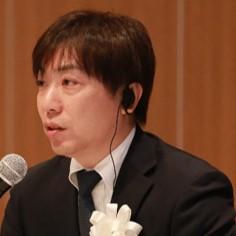
Naohiko Hibino |
| Panelists | |
| Panelists |
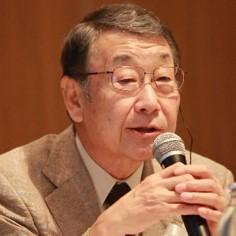
Shigeru Morichi |
| Panelists |
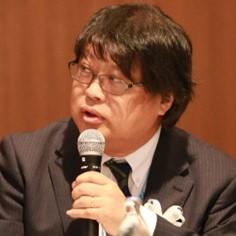
Atsushi Fukuda |
| Honorable Guest Remarks | |
| Closing Remarks | |
| MC |
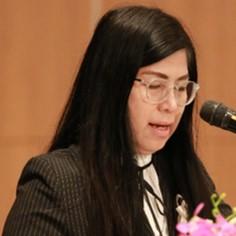
Tuenjai Fukuda |
Outline of the seminar
Director Morichi explained why the TOD is necessary in the metropolises in Asia, the problem of incorporating the value capture into the financial resource of railway development, the importance of improving the accessibility to stations by creating the densely network of urban railway, what to learn from the failures of PPP implementation in Asian railway projects.
Next, Senior Research Fellow Muto described the issues involved in railway development in metropolises of ASEAN, good examples of TOD integrated railway and area development in Japan, and methods of development-based land value capture in domestic and overseas for securing financial resources for railway development. He introduced and reported on the issues and the countermeasures for railway development in Bangkok.
【Highlights from Keynote Lecture by Director of Policy Research Center, National Graduate Institute for Policy Studies Morichi Shigeru】
・There are various types of value captures, such as taxes, bonds, fees, and urban redevelopment schemes, so the
implementation of TOD has the potential to increase the values.
・In ASEAN countries, development along railway lines has been limited. The reason is the weakness of the TOD system. I’d like to recommend
institutional reforms such as improvement of the urban planning system and a mechanism to form consensus with the residents.
【Highlights from Report by JTTRI Senior Research Fellow Masai Muto】
・In the TOD of Toukyu Den-en-toshi Line in Japan, residential area development along the railway line progressed, the number of railway passengers
increased, and the land prices also rose. Behind this is the facts that Japan was in a period of high economic growth, and the railway company strongly
promoted urban development plans through unified brand concepts.
・From the examples of land value capture such as beneficiary charge, the sale of air rights, etc., they have been proven to be an effective method to
raise funding for the investment during the early stage of railway development.
【Highlights from Panel Discussion】
Discussions were held on the issues and prospects of urban railway and area development in Bangkok.
First, Mr. Sorapong introduced missions of the Department of Rail Transport, Ministry of Transport, which was established in April last year, and Professor Fukuda reported from his experience participating in the revision of the Metropolitan Urban Railway Master Plan (M-MAP2). The concept of ''What kind of city planning will you create in Bangkok? '' was missing, and Director Morichi said that there is a parking lot at the railway station in Bangkok, however, there is no station plaza etc. Each point was pointed out to promote TOD in Bangkok.
Then, talking about the future prospects, Director Sorapong introduced the development plans of Bang Sue Station and Makkasan Station, and explained the TOD policy. Professor Fukuda pointed out the importance of railway demand forecasting in formulating a master plan. Director Morichi said that BRT and LRT have small transport capacities, and that metropolises in Asia should not introduce a transit system with the small capacity. And he explained about the concept of the fare setting.
In addition, a question from the participant of the venue was discussed the expectations for the TOD for the Railway Bureau. Concluded the panel discussion with a moderator Associate Professor Hibino saying, "I wish for a successful TOD in Thailand."
